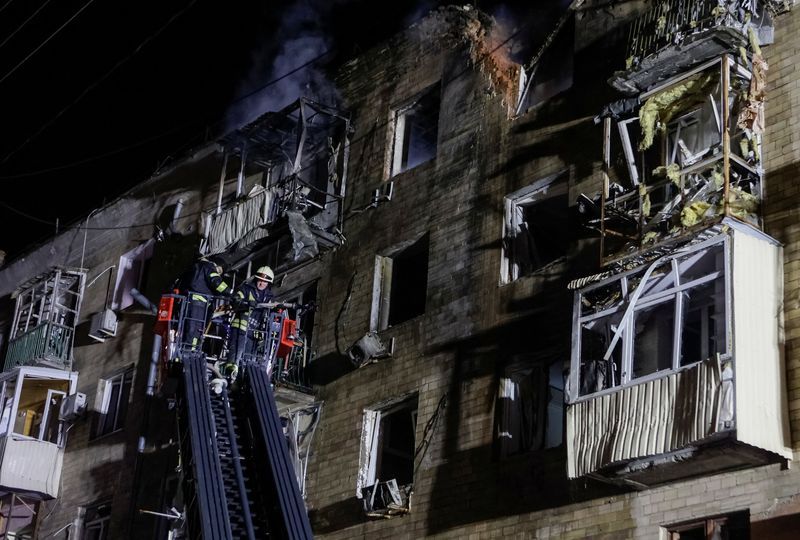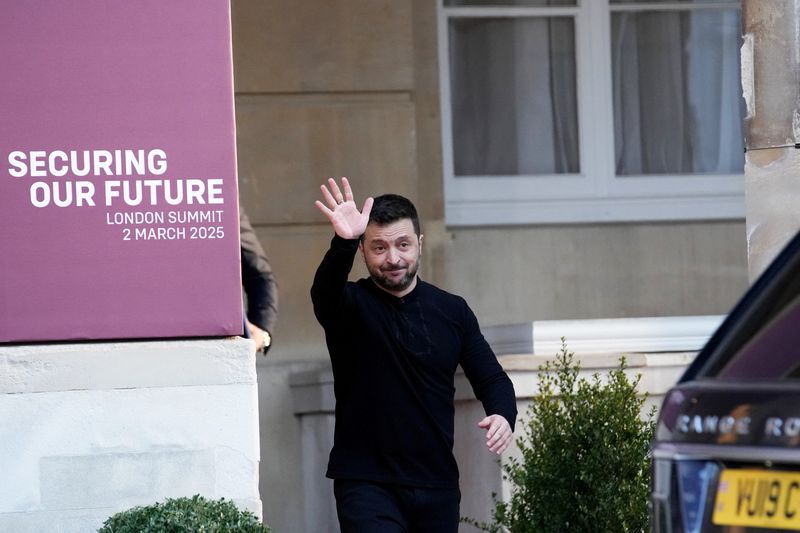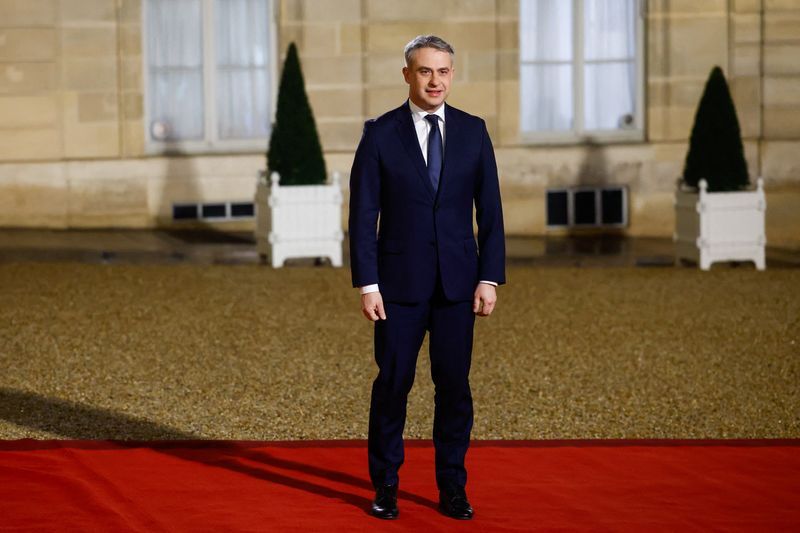
German Chancellor Olaf Scholz, German Defence Minister Boris Pistorius and CEO of Rheinmetall Armin Papperger visit a production line at the future site of an arms factory where weapons maker Rheinmetall plans to produce artilleries from 2025, in Unterluess, Germany February 12, 2024. REUTERS/Fabian Bimmer/Pool
DUESSELDORF (Reuters) - German Chancellor Olaf Scholz on Monday said defence companies could count on his government ramping up military spending and that it would meet its commitment to spend 2% of GDP on NATO defence.
Scholz was speaking after former U.S. President Donald Trump sparked outrage among U.S. allies by suggesting the United States might not protect fellow NATO members who are not spending enough on defence against a potential Russian invasion.
While in office, Trump publicly criticised countries that did not meet the NATO alliance's goal to spend 2% of gross domestic product on defence.
Scholz said Germany and Europe's defence industry must switch towards mass production of arms as the war in Ukraine exposed how European manufacturers struggled to meet demand for ammunition.
Scholz was on a visit to the future site of Rheinmetall's arms factory in central Germany.
"We have to move away from manufacturing towards large-scale production of defence equipment," Scholz said.
"Not only the United States, but all European countries must do even more to support Ukraine. The pledges made so far are not enough. Germany's power alone is not enough."
Scholz said the military and Germany's defence industry could now depend on Berlin's commitment to meet the 2% NATO target.
"That is urgently needed. Because as harsh as this reality is: we do not live in times of peace," Scholz said.
He added that European states must bundle their arms orders together to help the industry meet longer-term commitments.
"If I want to buy a VW Golf in two or three years, then I know today: It will exist. I might have to wait three or six months for it, but then the car will be in the yard," he said.
"But that's not how arms production works. Tanks, howitzers, helicopters and anti-aircraft systems are not on the shelf somewhere."
Rheinmetall, one of the biggest producers of artillery and tank shells in the world, began ramping up production after Russia's invasion of Ukraine, where the need for ammunition has exacerbated a shortage and left European manufacturers struggling to meet demand.
"The construction of our new factory is a direct result of the changing times," Rheinmetall CEO Armin Papperger said.
The plant, which is expected to begin production next year, will contribute to the making of around 200,000 artillery shells every year.
Rheinmetall said it is planning to invest 300 million euros ($323 million) and create around 500 new jobs.
It aims to be able to cover the Bundeswehr's demand for ammunition manufactured in Germany and also guarantee deliveries to partner countries in the event of a crisis. Rheinmetall intends to produce the entire value chain for artillery ammunition at the factory in central Unterluess.
(Reporting by Matthias Inverardi and Andreas Rinke; writing by Bartosz Dabrowski and Riham Alkousaa; editing by Miranda Murray, Matthias Williams and Nick Macfie)




































